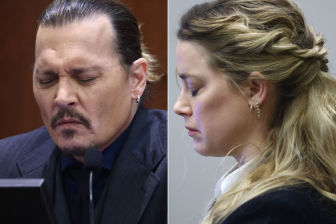COMMENTARY: Bruising CPC leadership race could leave eventual winner with unity problem
The most important question facing the federal Conservative Party may not be who will be its next leader but more can the party remain intact no matter who that winner is.
While party leadership races can often feature some bruising, bitter internal battles, the leadership contest the Conservatives are mired in seems particularly nasty with the kind of heated rhetoric that makes one wonder whether some of the main contestants (and their supporters) can stand to be in the same room.
The most divisive figure seems to Ontario MP Pierre Poilievre, whose hard right, populist and heavily ideological campaign seems to be taking pages out of former U.S. President Donald Trump’s campaign book.
Poilievre cheered on the right-wing truck convoy in downtown Ottawa and used it to launch attacks on the Trudeau government. One of his recent messages is that it is now the time to “get rid of the gatekeepers” in Ottawa, which sounds like a riff of Trump’s “drain the swamp” reference to Washington D.C. when he was campaigning for president.

Leadership candidate Jean Charest has blasted Poilievre and said he should be disqualified from the race entirely because of his support for the truck convoy and its blockade. Another leadership candidate, Patrick Brown, has accused Poilievre of backing “discriminatory policies,” such as a ban on wearing the a niqab while taking a citizenship oath.
Poilievre, for his part, fired back by issuing a statement that called Brown a liar. “Patrick Brown lies a lot,” it said. As for Charest, Poilievre attacked him before he even entered the race by branding him as a false Conservative.
In any event, Poilievre is widely considered the front-runner in this increasingly nasty contest. He has drawn large crowds on a speaking tour through western Canada, and is getting more media attention than any of his opponents.

Critics dismiss his policies as simplistic when it comes to things like tackling inflation (Poilievre is weirdly attached to cryptocurrency as the magical answer to this) and taxation. He is framing himself as the populist alternative to the establishment in central Canada (even though was once a government MP from Ottawa, the epitome of that establishment).
Nevertheless, Poilievre is doubling down on playing off a bloc of voters who are either seething with rage or deeply unhappy with the state of affairs in their own lives and is offering them a different way forward, as simplistic or unworkable as it may be.
Whether that plays well in Metro Vancouver, Toronto and Montreal (where the vast majority of the ridings are located) remains to be seen. Of course, he has to win the leadership race first and it employs a complex voting system consisting of each riding being assigned 100 “points,” with a ranked preferential ballot system.
A big rally for Poilevre in Edmonton may look impressive, but Quebec with its 78 ridings has 7800 points, compared to Alberta’s 3400.
The Conservatives vote for a new leader on Sept. 10. The party was splintered before the race even began and one has to assume the internal divisions are much deeper now, given the nasty vitriol and scorched earth approach dominating any discussion.
Will a new version of the old Reform Party emerge from what could be political wreckage? Or can the new leader keep together a party that seems to be on the verge of fracturing?
The eventual answers to those questions will shape the federal political landscape for years.
Keith Baldrey is chief political reporter for Global BC
© 2022 Global News, a division of Corus Entertainment Inc.



